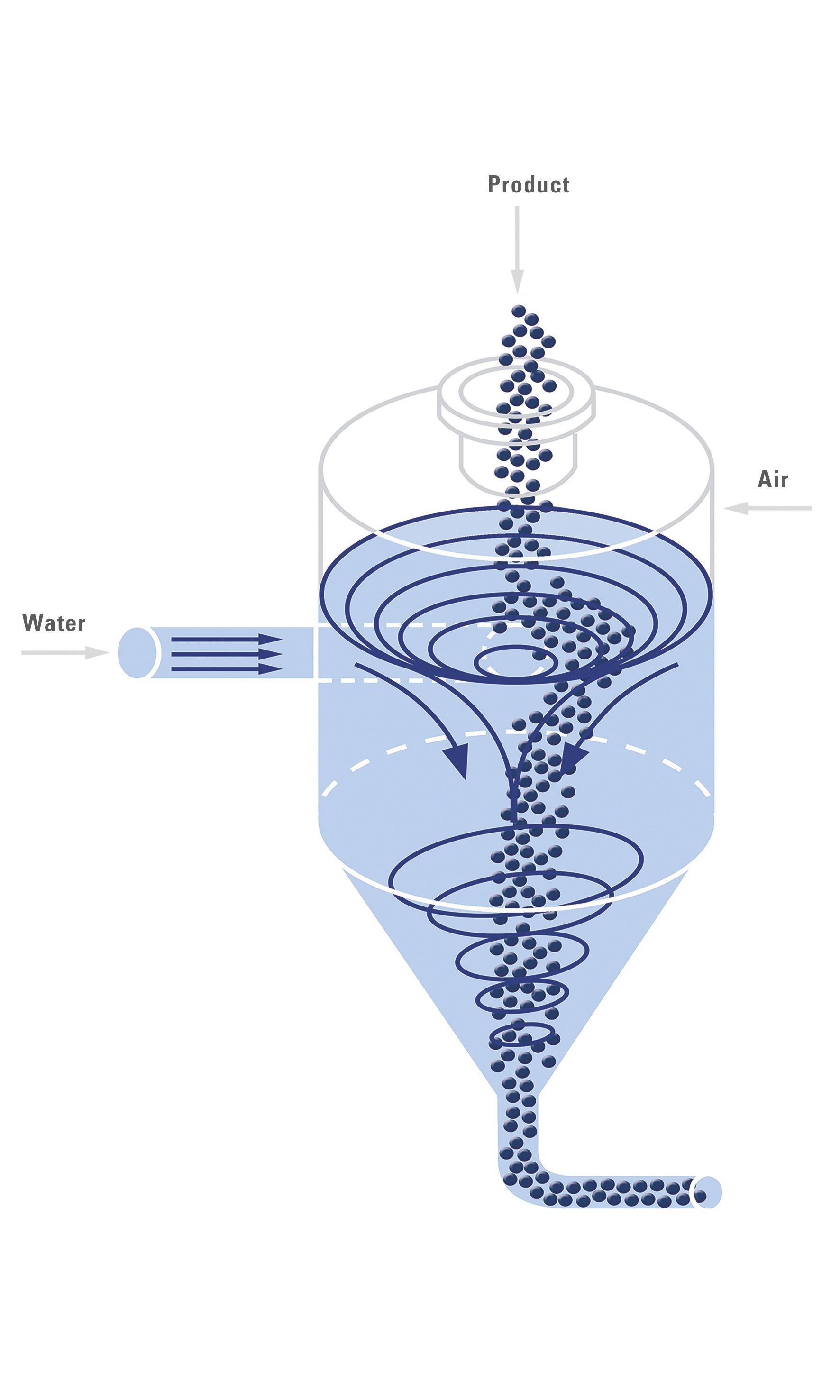For about 70 years, plastics production has been continuously increasing due to the growing global economy, significantly influenced by the demand for plastics in Asian countries and by new areas of application. This also increases the demands on production plants, as manufacturers not only have to expand their production capacities, but also react very flexibly and quickly to the different material properties of various product types. With its plant engineering concept, Zeppelin Systems responds to the demand for high performance and supplies individual complete solutions along the entire value chain from a single source.
The plastics boom is also influencing the production capacities of polymer plants, ensuring that outputs of 500 to 600 kt per year are now almost standard for single-line plants. In order to handle these quantities efficiently, the design of the conveying and logistics systems is elementary.
Technologies as an influencing factor on plant performance and product quality
In polymer production, conveying distances now range from 100 to 600 meters. Hydraulic conveying is suitable for long conveying distances and increasing raw material quantities, because it overcomes almost any conveying distance and at the same time enables throughputs of well over 100 t/h. While some systems on the market operate with pumps in the product-carrying water circuit, the Zeppelin conveying system locates the pump outside the product flow. With the patented Cyclo Feeder, Zeppelin Systems thus guarantees a gentle product feed, as there are no rotating elements in the conveying circuit that cause abrasion or product loss. This ensures the plant operator a very high product quality as well as a larger batch quantity and thus increases productivity. Hydraulic conveying also has a positive balance in terms of operating costs, saving between 60 and 80 percent of energy costs compared to the pneumatic conveying systems.
Another factor influencing product quality is the degassing process. This is because monomers are produced during the production process, for example in the case of LDPE pellets, which in too high a concentration can cause explosions and thus cause major damage to a plant. It is therefore important to remove these already in the silo. The process silos from Zeppelin System offer the highest safety standards in this respect thanks to a stepped cone. With openings in different diameters, this ensures that air can be injected at different points. The gas flows homogeneously over the entire cross-sectional area of the LDPE granulate contained in the silo and thus completely discharges the monomers.
Close to the raw material: the location issue demands high quality from the production plant
Oil and gas are necessary for the plastics production. Therefore, production facilities are often located close to these raw material sources to avoid long transport distances. These are regions with sometimes extreme climatic conditions, such as Siberia or desert regions. The plant concept must be able to withstand these conditions. With over 70 years of experience in handling bulk materials, Zeppelin Systems is an expert when it comes to plastics and their material properties. This means that every plant is designed accordingly and is adapted to extreme local conditions as early as the design phase: from appropriate temperature control of the conveying air and heating systems for cold regions to insulation and sun protection systems for warm areas.
Worldwide network with local partners
The high demands placed on the technologies are not only a result of the process or the environment itself, but there is also another important component for efficient production: on-site services. Already during plant installation, it is helpful to have a competent partner on site to support the start-up of the plant. In addition, the company offers holistic service for the entire plant life cycle, such as production optimization, predictive maintenance or a comprehensive training program - live on site or via virtual talk.
